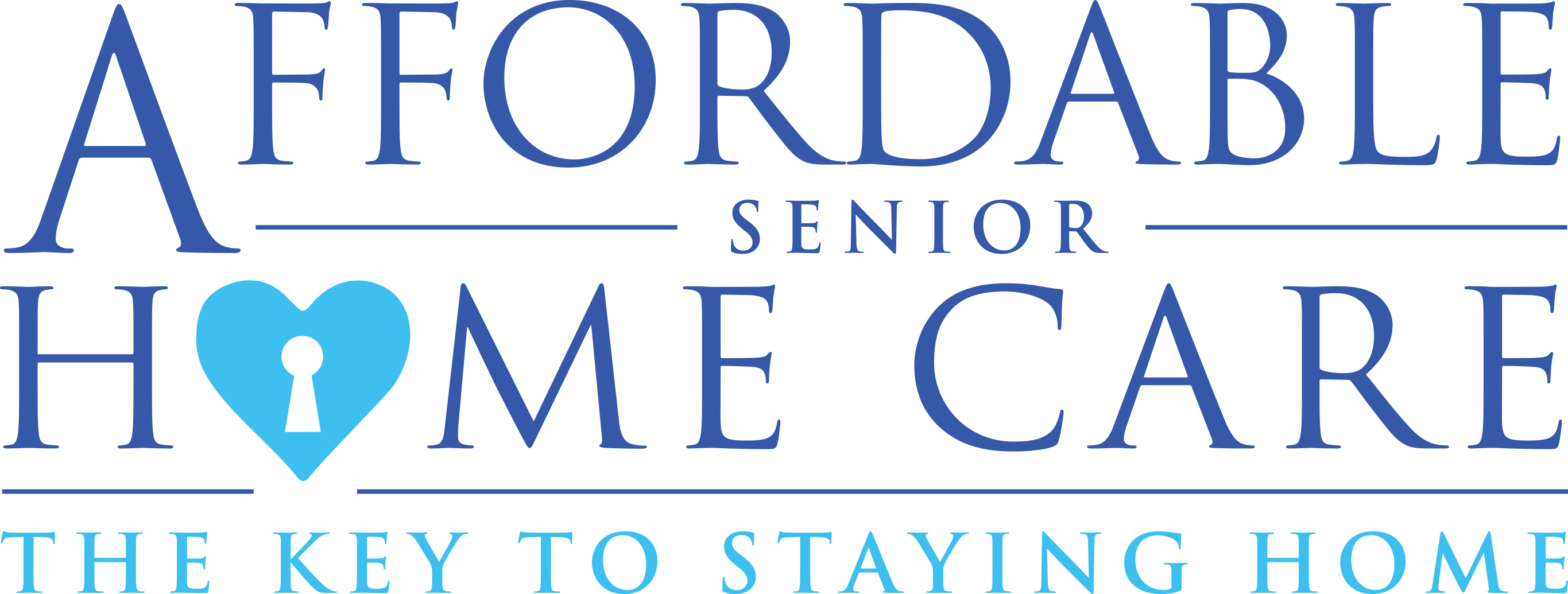Senior Fall Prevention
As you or your loved one grow older, the likelihood of falling increases. Maybe someone in your family has already experienced a fall and you’re wondering what to do next.
Luckily, there are steps you can take to reduce the risk of falls and enable you or your senior family members to safely age in place.
Top Tips for Senior Fall Prevention
One in four older Americans are affected by falls, so chances are it’s happened to you or someone close to you. A fall can lead to injury, as well as loss of confidence, but it doesn’t mean it’s time to give up living at home.
Here are seven helpful senior fall prevention tips:
1. Modify Your Bathroom
Over half of all senior falls happen in the home and many of those take place in the bathroom, so it’s the most sensible place to start making modifications.
Try these ideas to help you or your loved one stay on foot in the bathroom:
- Put grab bars near the toilet and in the shower for added stability and balance
- Use durable, non-slip rubber mats at the vanity and just outside the shower or tub
- Consider using a shower chair and hand-held showerhead to prevent slipping while bathing
2. Fall-Proof Your Whole Home
It’s understandable to have some reluctance altering a home you know so well, but the benefits outweigh the drawbacks. A few cosmetic differences are a small price to pay to avoid serious injury.
Here are some things you can do to help with senior fall prevention in the home:
- Lighting. Increase lighting throughout the home, especially at the front and back doors, and on any stairs.
- Stair handrails. Put a secure rail on both sides of stairways, including outdoor areas, and consider a grab bar by the front door to steady you while you find your keys.
- Outdoor Steps. Check the condition of outdoor steps and walkways. Look for loose tile or wood.
- Rugs and Cords. Make sure rugs and mats are slip-free or have rubber grips underneath to avoid slippage. Tuck away loose cords and secure them to baseboards to prevent trips and falls.
- Rearrange Cupboard Content. Put commonly used food, kitchen items, and other household things in easily reachable places to avoid the use of stepladders and stools.
- Perform Home Maintenance. Have family or friends do minor maintenance tasks when they visit, like changing light bulbs, testing smoke detectors, etc.
- Declutter the Bedroom. Ensure the path from the bed to the bath is free of obstacles for smoother transitions, morning and night.
3. Pay Attention to Medication
If you suspect your or your loved one’s medication is having a negative effect on physical coordination or vision, talk to a medical provider.
Similarly, if you’re forgetting to take your medication as prescribed, you could set a reminder to make sure you stay on schedule.
4. Regular Vision Tests
When you can’t see well, it’s difficult to keep your balance. Regular vision checks improve your ability to remain stable, and also aid in uncovering conditions before they have major impacts.
Note that tint-changing lenses and bifocals can make it harder to see when moving about indoors or climbing stairs.
5. Utilize Walking Aids
If a cane or walker is part of your daily mobility strategy, make sure it’s the right size and fit. The wrong walking support(s) can do more harm than good, and increase fall risk, when not fitted correctly for your needs.
6. Hire an In-Home Caregiver
An in-home caregiver is a fantastic way to get some help in the home, avoiding the need for a major move to a full-time care facility.
You can choose whether the caregiver lives with you, visits on an hourly schedule, or helps with personal care only. In-home caregivers offer support and assistance with:
- Daily tasks and itineraries
- Cooking, nutrition monitoring, and food prep
- Household sanitation, cleaning, and chores
- Emergency medical responses and situations
- Transportation assistance to appointments and events
- Bathing, grooming, dressing, hygiene, and incontinence care
- Mobility support
- Medication reminders
- Post-op or post-hospital stay support
- Errand running and grocery shopping
- Light housekeeping, linen, and laundry support
In-Home Care Supports Senior Fall Prevention
You know the saying, prevention is better than cure. Similarly, it’s a great idea to increase your senior fall prevention awareness before you or your loved one starts to experience repeated falls.
But maybe you’re still feeling confident on your feet and simply looking for companionship?
In that case, an in-home caregiver can visit and provide just that. They’ll be more than happy to take part in various activities, including:
- Reading, watching TV, playing games, puzzles, or cards
- Going out and about town to dine, attend local activities, going to the movies, etc.
- Enjoying lunch or dinner together
- Dancing and listening to music
- Taking walks and walking the dog
- Going through photo albums and movies and talking about cherished memories
They may also perform some of the same duties as a live-in or hourly caregiver.
At Affordable Senior Home Care, we believe the greatest advantage of our services is that they enable you to safely, confidently, and comfortably age in place.

